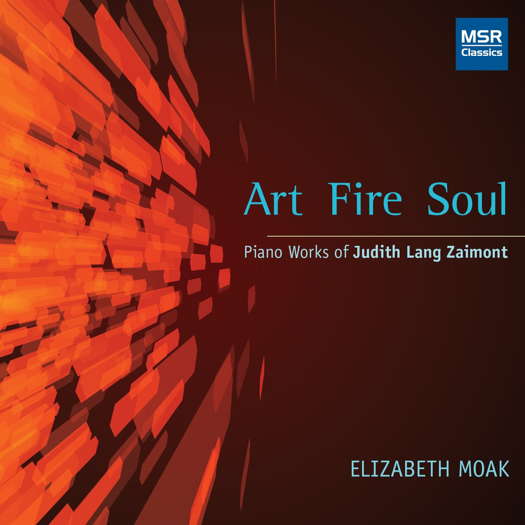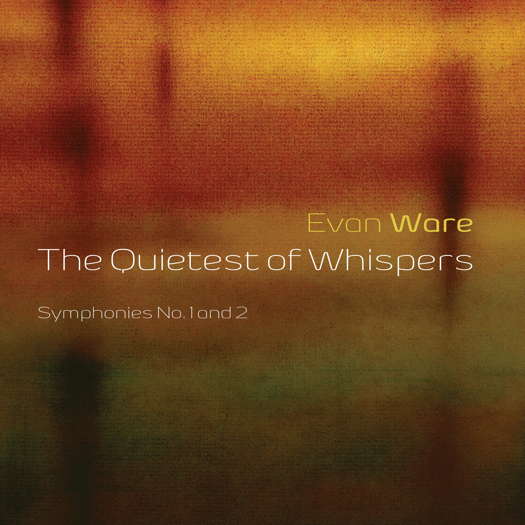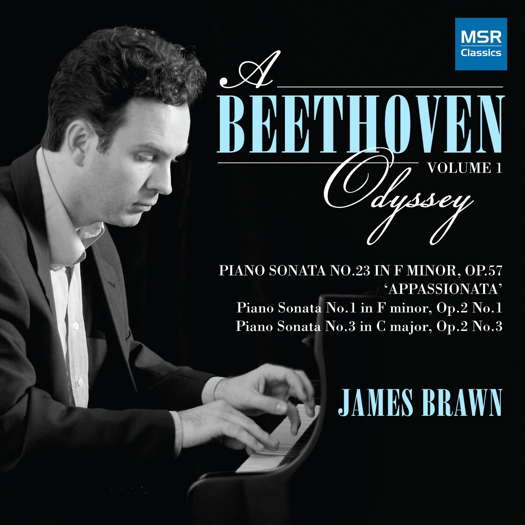 SPONSORED: CD Spotlight. An Encyclopedic Recital - Elizabeth Moak plays Judith Lang Zaimont, heard by the late Howard Smith.
SPONSORED: CD Spotlight. An Encyclopedic Recital - Elizabeth Moak plays Judith Lang Zaimont, heard by the late Howard Smith.
All sponsored features >>

Gripping, Compelling Work
GEOFF PEARCE is impressed by Canadian composer Evan Ware's symphonies
'The performances are convincingly delivered by the soloist and ensemble directed by its conductor, Kevin Fitzgerald.'
This is a very interesting and challenging disc. Both symphonies are drawn from the experience and the journey afterwards as a result of sexual abuse. In the case of the First Symphony (composed in 2014) it was a response to the abuse the composer suffered as a boy.
Listen — Evan Ware: Symphony No 1: The Quietest of Whispers
(Neuma 180 track 1, 1:00-1:43) ℗ 2023 Evan Ware :
In the case of the Second Symphony it was because of an ongoing trial of a doctor at Michigan State University who was responsible for large scale sexual abuse of women.
Symphony No 2 was written in 2019 and the poems used are by Jane Hirschfield. The programme notes in the attached booklet written by the composer are comprehensive and help one understand the emotional content of the works. The programme notes are especially valuable as the composer writes in a complex musical language at times, and whilst it is readily accessible, can be somewhat hard edged.
The First Symphony is in one complete movement, goes through many stages of emotion, and there is quite a collision of different musical idioms that reflect the various emotions that ultimately end in acceptance of himself and the situation, but also in forgiving the perpetrator. With a duration just under thirty minutes, this is a gripping, compelling work.
Listen — Evan Ware: Symphony No 1: The Quietest of Whispers
(Neuma 180 track 1, 9:31-10:13) ℗ 2023 Evan Ware :
The second symphony is in six movements, divided into three orchestral interludes (movements 1, 3 and 5) and the songs based on the three poems (movements 2, 4 and 6).
In the notes the composer says:
Perhaps better than any other works I have written, these two symphonies realize a core aim of my work: that it helps people face the most formidable questions of our daily lives. I offer no solutions. What I do offer is my companionship and understanding in dark places; the faintest of lights, perhaps, the quietest of whispers.
The symphony is not long, and is tightly structured. The overall musical language is less of a challenge for the listener, I think, partly because the emotion is a little less raw.
The first movement, 'Prologue', is an orchestral introduction that puts the listener in the right place to experience this journey, against a very slow moving element, there are unsettling faster rhythmic interjections that leave the listener with a sense of anticipation.
Listen — Evan Ware: Prologue (Symphony No 2)
(Neuma 180 track 2, 0:47-1:34) ℗ 2023 Evan Ware :
This is followed by the longest movement, and the first movement with vocal soloist, entitled 'Begin Again'. (The poem originally was entitled Da Capo.) Here the singer tells that she has cast out her heart as it is worn out, and then returns home to prepare the evening meal. I think that this is something she does on a daily basis, and there seems to be no joy, but a kind of weariness. There is an exultation that the task is complete, but she knows it will be done all over again.
Listen — Evan Ware: Begin Again (Symphony No 2)
(Neuma 180 track 3, 5:14-5:59) ℗ 2023 Evan Ware :
'Night Music' is a selection of masterful solos that merge together, starting with a saxophone. There is some luscious writing and harmonies here, but in the last third of this movement, I feel there is an ominous quality that leaves you feeling quite unsettled.
'The Fire' is where the singer looks back at some of the pivotal moments that have not really been resolved. 'Why else take up the body's single candle, if not to see how everything is consumed?' There are a lot of different emotions exposed here, and I think the composer has the skills to illustrate these quite starkly.
Listen — Evan Ware: The Fire (Symphony No 2)
(Neuma 180 track 5, 4:55-5:37) ℗ 2023 Evan Ware :
The Fifth movement, entitled 'Crossing', depicts a rail level crossing and the jangling of the bells, the train approaching, passing and then sounds fading into the distance. The effect is one of a Doppler shift, which sets up the final movement, 'Turn Over' - originally the poem entitled The Clock - where the old situations can be accepted, turned over and a new chapter of life can begin, by the survivors themselves.
Listen — Evan Ware: Turn Over (Symphony No 2)
(Neuma 180 track 7, 0:45-1:39) ℗ 2023 Evan Ware :
Overall, this movement is fairly calm, even though there are impassioned moments, and it is neither anger nor despair, but perhaps triumph? And then the movement subsides and ends peacefully.
These two symphonies are thought provoking and even though the subject matter is disturbing, the end results do not dwell on the tragic elements, but more the healing and moving on, which are so essential if the victims are to survive in a meaningful way.
The performances are convincingly delivered by the soloist and ensemble directed by its conductor, Kevin Fitzgerald. To be honest, I did not know what to expect with this disc and was actually impressed with the vision and the end result. The programme notes, written by the composer, really help illuminate what these important works are about.
Copyright © 14 August 2023
Geoff Pearce,
Sydney, Australia




